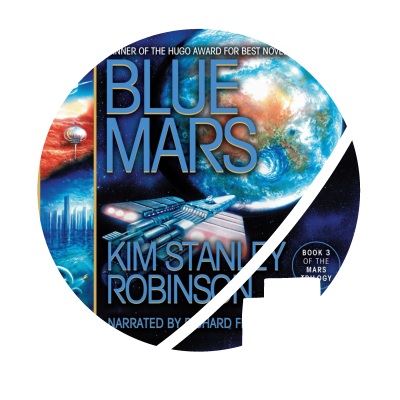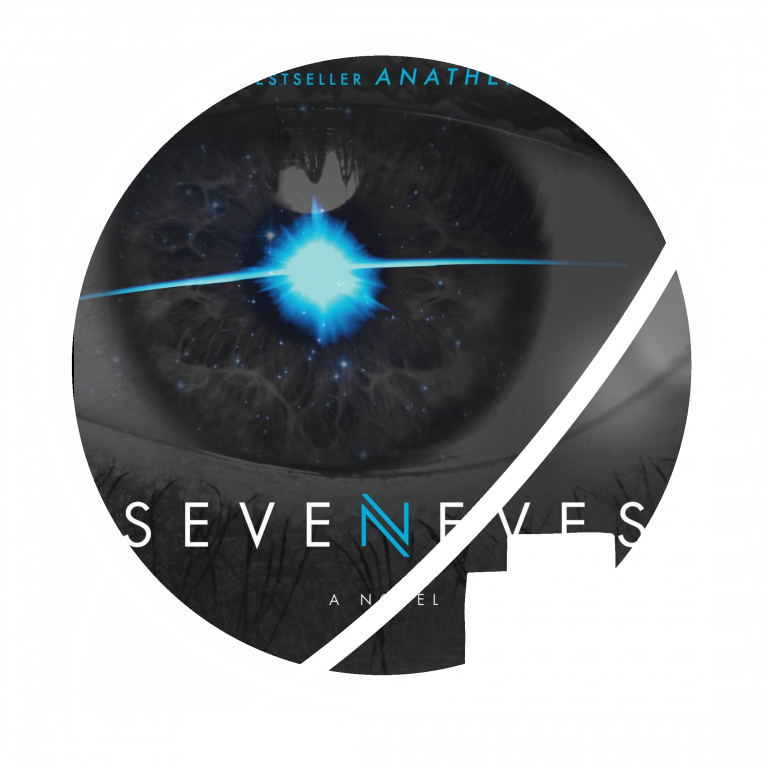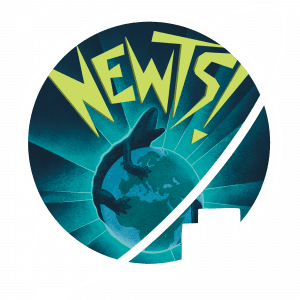- Book written by Kim Stanley Robinson
- Published April 1996
- Part 3 of the Mars Trilogy


Listened to the audiobook with Richard Ferrone – narration fits with the book really well.
Blue Mars continues the evolution of the Mars-trilogy: from the intra-group politics of Red Mars, to the Martian politics of Green Mars, Blue Mars now brings us interplanetary politics involving not just the Earth and Mars, but the inhabitants of the rest of the solar system as well.
Interestingly, with the increasing scope of the narrative, it felt as if Robinson was able to let go of the need to describe every stage in the story. Instead, Blue Mars returns to more of a patchwork of separate stories that are actually much closer to some of the characters in the story. As a result, even though the book covers a lot more time and space than the previous works, it feels at least as character-driven as Red Mars.
Blue Mars is also a lot more diverse than either Red or Green. As Mars undergoes terraformation, its climate and biosphere grow more robust and varied – and so the action doesn’t just take place on red desert or white ice, but on biotopes nearly as diverse as those on Earth. In addition, without giving away more than necessary, Blue Mars takes some of our main characters off-planet on expeditions to places familiar and new. All in all, not a page of the book feels stale, or a rehash of what the trilogy has done before.
That being said, this is still the Mars-trilogy, with its trademark deep dives into areology (that is to say, the geology of Mars), sociology, politics and, in Blue Mars, even the biochemistry of memory and a little string theory (I am not making this up!). And if you’ve gotten to this point in the trilogy without giving up, I am sure you’ll enjoy those tangents too!
If you’ve read the first two books, you’ll know what to expect: a novel that puts the science in science fiction, while intimately close to a set of characters that are each struggling with their relationships to those around them, and with their role in the colonisation of Mars.
Above all else, Blue Mars is a very satisfying conclusion to an ambitious trilogy, and a cli-fi novel that wrests a hopeful ending from the jaws of realism – perhaps that final achievement alone makes it worthy of the 1997 Hugo!















